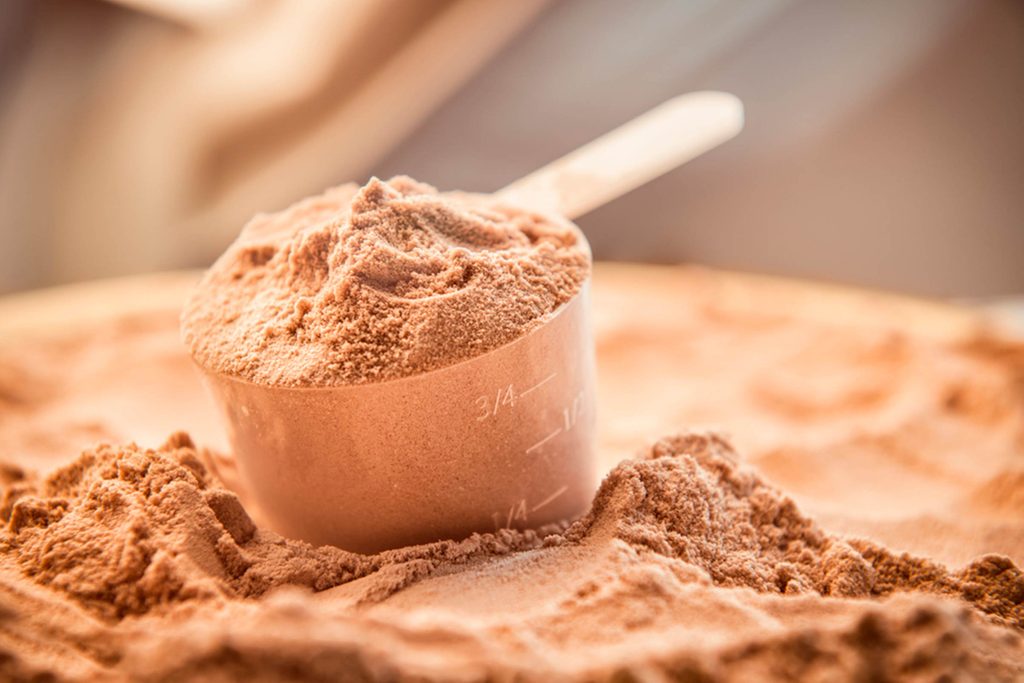This Is the Age When You Really Should Be Drinking Protein Shakes, According to Science
Updated: Jul. 27, 2017
Protein shakes aren't just for young gym buffs, anymore.
You might be used to seeing twenty-somethings in tight sports gear promoting whey protein supplements, but that may be about to change. According to new research from McMaster University, whey protein and other ingredients in a ready-to-drink formula can greatly improve the physical strength of senior citizens. (If you’re confused by the range of supplements out there, here’s how to find the best protein powder for you.)
Two groups of men aged 70 and older participated in the study, which was published in the journal PLOS ONE. One group took a protein-based, multi-ingredient nutritional supplement for six weeks without an exercise regimen. The other group took a placebo. After the six weeks, the participants continued to take their supplement or placebo for a further 12 weeks, but also undertook a progressive exercise training program consisting of resistance and high-intensity interval training (HIIT). “We chose that combination of exercises to get a maximal benefit in terms of fitness and muscle strength,” Gianni Parise, scientific co-lead on the study, told ScienceDaily. “I know many think older persons can’t do that type of exercise, but that’s simply untrue.”

The most impressive finding from the study was that the participants taking the supplement gained 1.5 pounds of lean body mass—muscle, mostly—in the first six weeks, which is typically the amount they would lose in a year. After adding exercise to the mix, they noticed greater strength gains, particularly compared to the participants who took the placebo. “Clearly, exercise is a key part of the greatly improved health profile of our subjects,” says PhD student Kirsten Bell, “but we are very excited by the enhancements the supplement alone and in combination with exercise was able to give to our participants.” Look out for signs you’re not getting enough protein.
This research is important, because sarcopenia—the deterioration of muscle mass and strength that is a normal part of aging—can increase the risk of falls, metabolic disorders and the need for assisted living. “Older people who do little to prevent the progression of sarcopenia drift toward a state where they find activities of daily living, like rising from a chair or ascending stairs very difficult or maybe impossible,” says lead scientist Stuart Phillips, PhD, professor in the Department of Kinesiology and member of McMaster’s Institute for Research on Aging.
While a number of isolated nutritional ingredients have been tested and shown to fight sarcopenia, this is the first time such ingredients—which include whey protein, creatine, vitamin D, calcium and fish oil—have been combined and tested for this purpose.
Check out more secrets to aging gracefully.